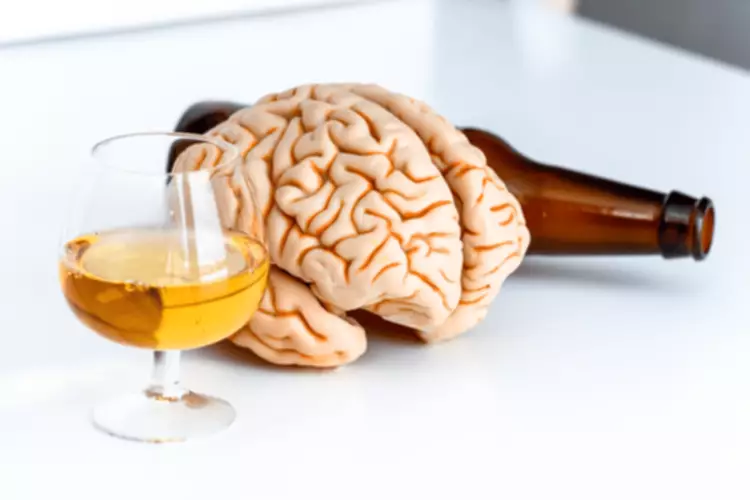
Understanding these aspects is crucial for individuals who want to make informed choices regarding their alcohol intake. Alcohol has been found to increase platelet aggregation, meaning that platelets are more likely to stick together and form clots. This effect can potentially lead to an increased risk of blood clots, which can be dangerous if they travel to vital organs such as the heart or brain.

We can help you along the path to a healthy, successful, and stable life.
They can provide personalized guidance and help you make informed decisions about alcohol consumption, taking into account any medications you are taking and your unique health circumstances. If you take blood-thinning medications to help prevent blood clots, there are some simple things you can do to help prevent bleeding while you do your usual activities. Alcohol consumption has a profound effect on various systems of the body, with the liver and brain being particularly vulnerable. Alcohol is metabolized by the liver, and excessive intake can lead to a buildup of toxic substances, resulting in conditions such as liver disease and cirrhosis. According to the National Institute on Alcohol Abuse and Alcoholism (NIAAA), a significant percentage of liver disease deaths are alcohol-related. The liver’s ability to process alcohol diminishes with increased consumption, heightening the risk of liver damage.

Risks and Side Effects of Mixing Blood Thinners and Alcohol
It also raises levels of plasminogen activator inhibitor-1 (PAI-1), which prevents clots from breaking down, affecting the balance between blood clotting and thinning, especially in heavy drinkers. Alcohol consumption can lower plasma fibrinogen levels, a protein essential for blood clotting, potentially reducing the risk of heart attacks and strokes but increasing the risk of bleeding. Long-term effects of excessive alcohol consumption can be detrimental to blood and heart health. Both high blood pressure and heart disease risk are increased in people who use the substance in excess for an extended period. However, this doesn’t mean a person at risk for atrial fibrillation or who already has the condition can never sip a glass of wine or beer again.
- For some people with atrial fibrillation, drinking alcohol in any amount may be too much, but moderate drinking may be okay for others.
- What else thins your blood and increases your risk of bleeding?
- Limit alcohol consumption to no more than 14 units per week to minimize potential complications.
- Additionally, alcohol is classified as a Group 1 carcinogen by the International Agency for Research on Cancer, indicating a high risk for cancer development, similar to asbestos and tobacco.
- AddictionResource aims to present the most accurate, trustworthy, and up-to-date medical content to our readers.
Does Alcohol Thin Your Blood?
HDL is considered “good” cholesterol while LDL is classified as “bad” cholesterol, a buildup of which can be a contributing factor in a heart attack. So, in a sense, alcohol can help to create a healthy balance of good cholesterol versus bad cholesterol, further lowering the odds for a heart attack or stroke. If you or someone you know is struggling with alcohol addiction, reaching out to healthcare professionals, support groups, or addiction treatment centers blood thinners and alcohol can provide the necessary guidance and support. They can help develop personalized treatment plans, which may include detoxification, therapy, counseling, and support to overcome alcohol addiction. People vary in their response to alcohol due to factors such as genetics, body weight, metabolism, and overall health. Some individuals may experience more pronounced effects on blood thinning after consuming alcohol, while others may have a minimal response.
But limiting them in your diet and being consistent in the portions you do eat is important. Changing up how much vitamin K you’re getting each day can prevent warfarin from doing its job. “It’s important to understand drug-food interactions when you’re taking a blood thinner like warfarin (Coumadin®) the most common one,” warns Dr. Bishop. If you take an anticoagulant like warfarin, you’ll need regular blood tests so your doctor can adjust your levels if needed. Ask them about other steps you should take to stay safe while you’re on this medication.
- Dehydration causes blood vessels to narrow and blood to thicken, raising the risk for blood clots.
- The CDC publishes that excessive drinking contributed to around 90,000 deaths and shortened lifespan of an average of 30 years for those who died from alcohol consumption-related issues between 2006 and 2010.
- They may also recommend joining a support group for individuals with AUD.
- Different anticoagulants work at different parts of the coagulation process.
- A person should also speak with a doctor or access online support if they have concerns that they or someone they know may have AUD.
Do not sell my personal information Privacy Policy and Terms of Use

Of all the blood thinners available today, warfarin is most strongly affected by excessive alcohol consumption. However, moderate consumption doesn’t significantly affect the metabolism of warfarin. Drinking alcohol every day, in fact, can raise your chances of getting atrial fibrillation (AFib), a condition that makes your heart beat really fast and out of rhythm.
Alcohol and Blood Thinners Before Surgery
- Alcohol abuse can lead to an increased risk of bleeding disorders, as well as liver damage that can disrupt the production of clotting factors.
- Short- and long-term alcohol use has different effects on the blood.
- Alcohol can thin the blood for several hours after consumption, with effects varying based on individual metabolism, alcohol quantity and other factors.
- You may be prescribed blood thinners for decades or even the rest of your life.
Alcohol can cause an increased release of cortisol and, in turn, higher blood pressure and a faster heartbeat. Short-term effects occur because of how alcohol impacts receptors in the blood. Specific blood vessels near the heart rely on receptors to keep blood pressure at a healthy level. When alcohol is in the blood, these receptors do not function as they should.
Blood Thinners and Alcohol: Interactions, Risks, and Side Effects

Atrial fibrillation is one of the most common heart rhythm problems. If you don’t treat it, you are at a higher risk of having a stroke. Low-impact activities such as walking, biking, yoga, Pilates and strength training are all fine. But if you enjoy higher-risk sports, ask your doctor if they’re safe for you, the NBCA advises.
AddictionResource aims to present the most accurate, trustworthy, and up-to-date medical content to our readers. Our team does their best for our readers to help them stay informed about vital healthcare decisions. Alcohol can thin the blood for several hours after consumption, with effects varying based on individual metabolism, alcohol quantity and other factors. This article discusses the effects that alcohol has on the blood in both the short and long term.
A 2011 literature review that included 84 prior research studies found that people who drank alcohol had a reduced number of cardiovascular and stroke deaths. Researchers also found decreased rates of coronary artery disease (CAD) and non-fatal stroke among people who drank alcohol compared to those who didn’t. It can also limit your kidneys’ ability to excrete broken-down toxins or drugs, such as your prescribed blood thinner. This can lead to the same harmful effect of excessive anticoagulation. This is not all the information you need to know about Eliquis (apixaban) for safe and effective use and does not take the place of your doctor’s directions.
